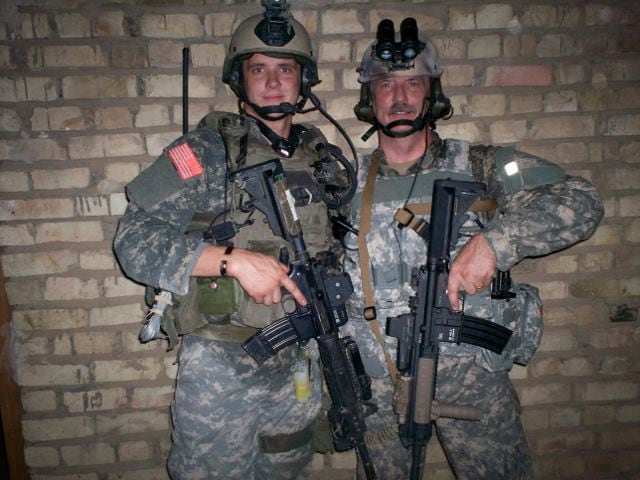The head of U.S. Army Special Operations Command has requested the Army reconsider an adverse discharge of a Green Beret for having drugs and alcohol in his system when he broke his neck trying to save a girl's life.
In a memo to Human Resources Command, which has final say on the matter, Lt. Gen. Kenneth Tovo called for a review of the case of Sgt. 1st Class Tim Brumit. The soldier was paralyzed from the chest down diving into shallow water from a boat in a storm in Florida in an effort to help a distressed swimmer last summer. In particular, Tovo asked HRC command to reconsider the "unknown factors that likely contributed" to Burmit's decision to jump.
"[I]t is difficult to ascertain how the consequences of multiple combat rotations could have impacted SFC Brumit's actions on 25 July. It is certainly possible that the negative effects of combat contributed to his substance abuse and ultimately to his extremely poor decision and lapse in judgement…that resulted in his paralysis," Tovo wrote. "From a commander's perspective, erring on the side of the Soldier and presuming that his headfirst dive was not an act of willful negligence adds an element of empathy to this case."
In a statement emailed to Army Times, Brumit's father Randy, a former Green Beret himself, expressed relief over Tovo's support, noting a positive outcome would allow Brumit to receive medical and service benefits from his 12-plus years of service.
"The past thirteen months of watching our son fight for his life has taken an enormous toll on our family. Our disappointment with the Army's decision to find 'No' on the Line of Duty Investigation remains, but this recent support is encouraging," the statement said, while also thanking Rep. Duncan Hunter, R-Calif. for fighting for Brumit.
More than a year after the incident, Tim Brumit was informed that an investigation determined that trace amounts of cocaine and a 0.10 blood-alcohol level in his system indicated his actions were reckless and not in the line of duty. That set him up for an other-than-honorable discharge, which could cost a huge sum in future medical costs given his condition. Brumit pushed back.
Brumit acknowledged coping issues had manifested in substance abuse and other problems, including fights with other soldiers, and said he had been drinking the day of the accident. But he also said he wasn't drunk when he misjudged the shallow, stormy waters, and hadn't done drugs that day.
Additionally, he said he'd been seeking help for his substance abuse for more than a year, as well as help for post-traumatic stress disorder and traumatic brain injury — and that the Army ignored his pleas. The Bronze Star recipient, who was in the 75th Ranger Regiment before joining Special Forces, said his chain of command pulled him out of an Air Force substance abuse program for duty. Emails acquired by the Daily Beast apparently back his claims that both he and his father had asked the Army for help.
While advocating for reconsideration, Tovo also defended the Army's progress in addressing the kinds of problems Brumit says he faced. He cited "20 combined medical, behavioral health, and substance abuse related meetings, screenings and surveys" that Brumit had participated in as signs of progress. He did acknowledge that "we cannot definitively conclude whether or not SFC Brumit has PTS," but suggested ample mechanisms were in place to diagnose it if he did.
Rep. Hunter's spokesman Joe Kapser called the memo "cause for optimism," adding that the "Army's new leadership team responds much differently and more effectively than the last group of leaders." But he also criticized the memo's implicit casting of doubt on Brumit's PTS.
